By Mohamed Khairat, founder, EgyptianStreets.com
Once one of the world’s most visited tourist attractions, Egypt’s Pyramids have been void of tourists since the 2011 revolution. For thousands of Egyptians whose incomes rely on tourism at the Pyramids, the lack of tourism has hit hard.
Near the Pyramids, once vibrant shopping streets now feel cold: tour operators have shut down, souvenir shops are soulless, and cafes once popular with tourists are empty.
At the Giza Necropolis – housing the Great Pyramids of Giza – hundreds of vendors and horse and camel operators are desperately searching for hope that tourists would return. In 2010, 14 million tourists from across the globe visited Egypt. Today, that number has declined by more than 50 percent – with the majority of tourists visiting locales along Egypt’s Red Sea.
Nevertheless, local Egyptians working in the tourism industry at the Pyramids remain hopeful that tourism – their lifeline – will return. Below is a set of photographs – including short interviews – with some local Egyptians.
The moment anyone enters the complex of the Pyramids, they are greeted by dozens of local Egyptians looking to make some money: from the camel operator to a faux-tour guide.
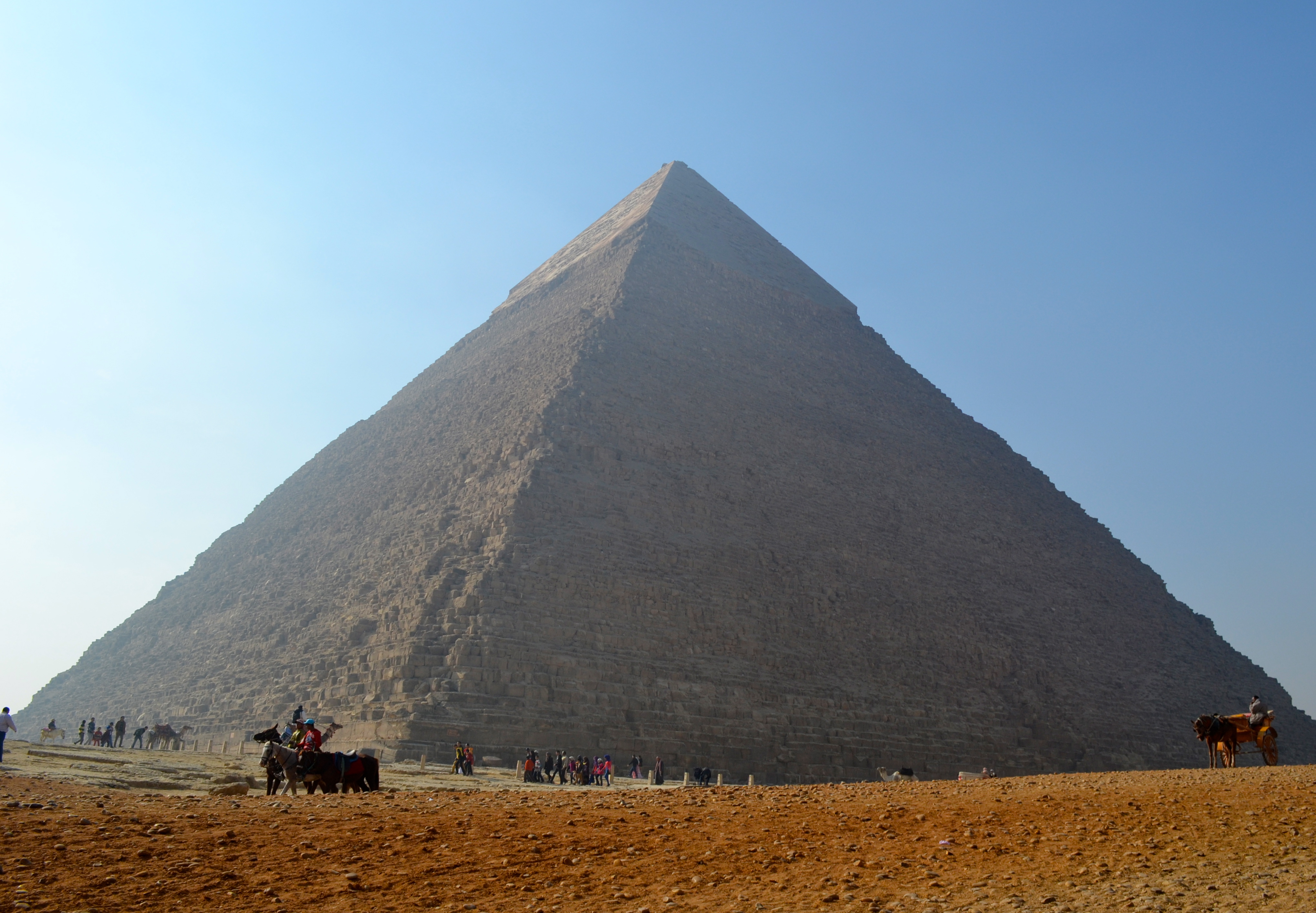 Further away from the entrance, it is easier to get away from the nagging vendors to enjoy the full-view of the Pyramid. In the shadows of the Pyramids, dozens of local Egyptians visiting the Pyramids for the weekend were milling around with their children in their arms.
Further away from the entrance, it is easier to get away from the nagging vendors to enjoy the full-view of the Pyramid. In the shadows of the Pyramids, dozens of local Egyptians visiting the Pyramids for the weekend were milling around with their children in their arms.
Despite the breathtaking view, it is difficult to ignore the sight of struggling Egyptians. This old woman said she had been working at the Pyramids for “years” without difficulty. Today, she struggles to make a sale and has been forced to reduce her prices due to an increase in competition as a result of the lack of tourists.
Camel and horse operators have also struggled. Dozens of camels stood at the Pyramids with no one to ride them. According to one camel operator, in the past it would have been difficult to find a camel to ride because of the high demand.
Many young children have been forced to leave school to help their struggling parents in the tourism industry.
While security has returned, said Mohammed, a horse operator, the tourists have not. A year ago, visiting the Pyramids was so risky that the US Embassy warned its citizens from visiting the only remaining Ancient World Wonder.
The dried up revenues from the tourism industry – which were once as high as $US 11 billion – have also affected the lives of the horses and camels used by locals. Mohammed revealed how not only does he have to feed his family, but also his horses. With little revenue, feeding his horses has become increasingly difficult – with many ending up in poor health.
With a lack of tourists, visiting tombs at the Giza Necropolis no longer requires waiting in a line. In the past, photographs were not allowed in these tombs. However, less moderation means that such rules are no longer followed.
While many photographs are taken with the camera facing the Pyramids, the opposite view provides a haunting image of a spiralling city and a struggling economy that is quickly encroaching on the Giza Necropolis.
Along the road to the panorama, several camel and horse operators are seen admiring the Pyramids. With a lack of tourists, many workers have been forced to simply wait for the situation to improve.
At the panorama, the vendors and operators were equally desperate. For this man, selling one scarf for a mere 15 Egyptian pounds ($US 2) allows him to buy food for several days. The smile upon his face when I decided to give him a few pounds still resonates in my mind.
Prior to the 2011 revolution, that pale grey road on the left side of the photo above would be filled with tour buses leading up to the panorama. Today, such buses are no where in sight. In fact, during this visit, there was not a single tourist at the panorama.
A short car (or horse carriage) ride away, on arrives at the Sphinx – also void of tourists but filled with local Egyptians seeking to make a living.
In the shadow of the Sphinx was this young, green-eyed girl who confused us for Turkish tourists and attempted to speak Turkish. She sells a pack of 10 Pharaonic-themed bookmarks for 10 Egyptian pounds ($US 1.45). Whatever little money she makes goes to helping herself and her family through each day.
Near-by, souvenir stands were left unattended and untouched. Prices for many of these souvenirs have plummeted in the past two years. One local vendor stated that he has had to reduce his prices by more than 60 percent in order to compete with other vendors and to earn the business of Egyptians visiting the ancient monuments.
Despite the increased difficulties, many locals are adamant to continue working, hoping that one day tourists will return in numbers that challenge the years prior to the 2011 revolution.
About the author and photographer: Mohamed Khairat is a 21-year-old university graduate, currently completing his Juris Doctor of Law at the University of Melbourne. As the founder of Egyptian Streets, Mohamed aimed to shed light upon the dire day-to-day situations that many Egyptians face. For the personal opinions and daily adventures of Mohamed, follow him on Twitter: twitter.com/khairatmk
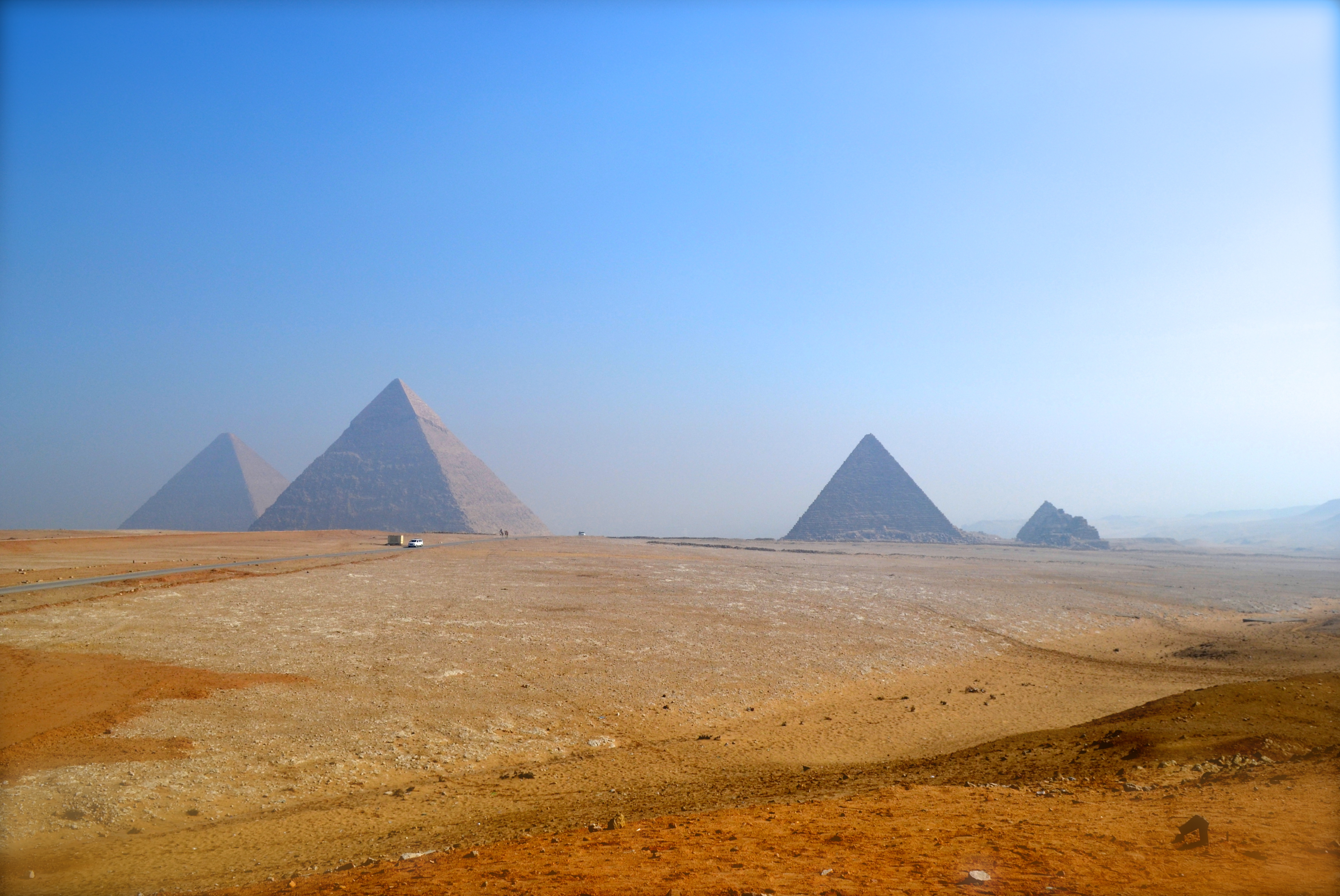
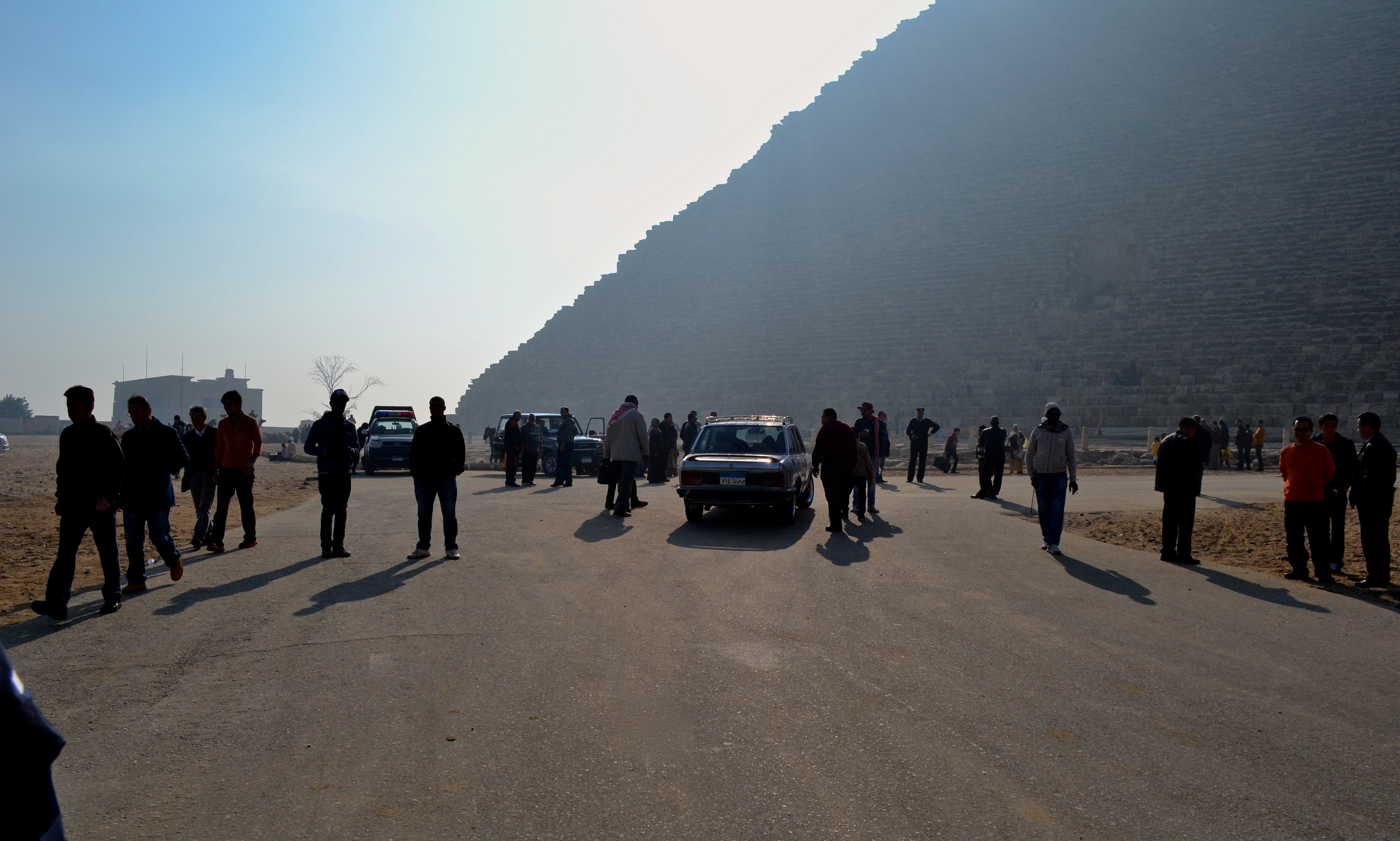
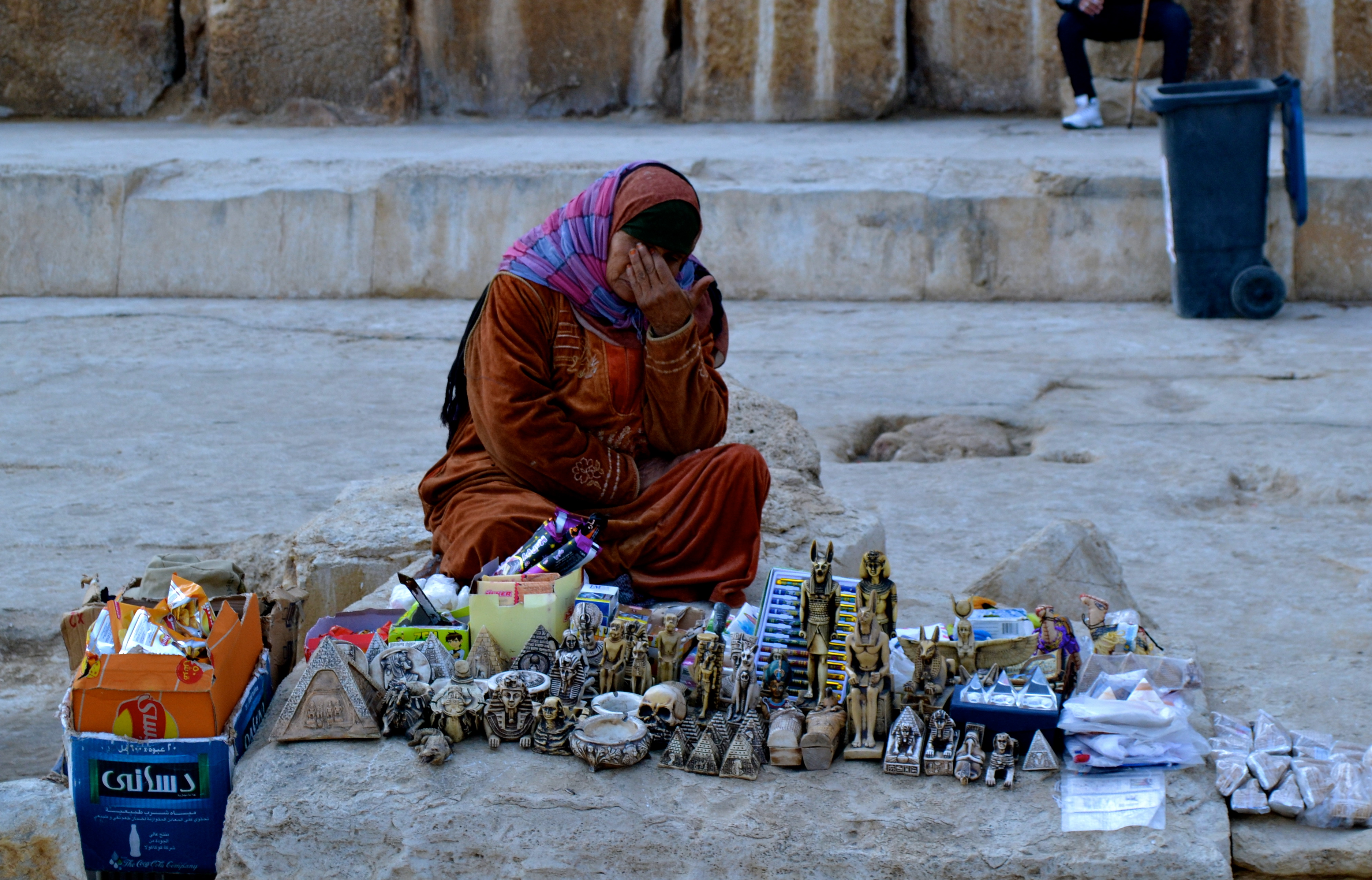



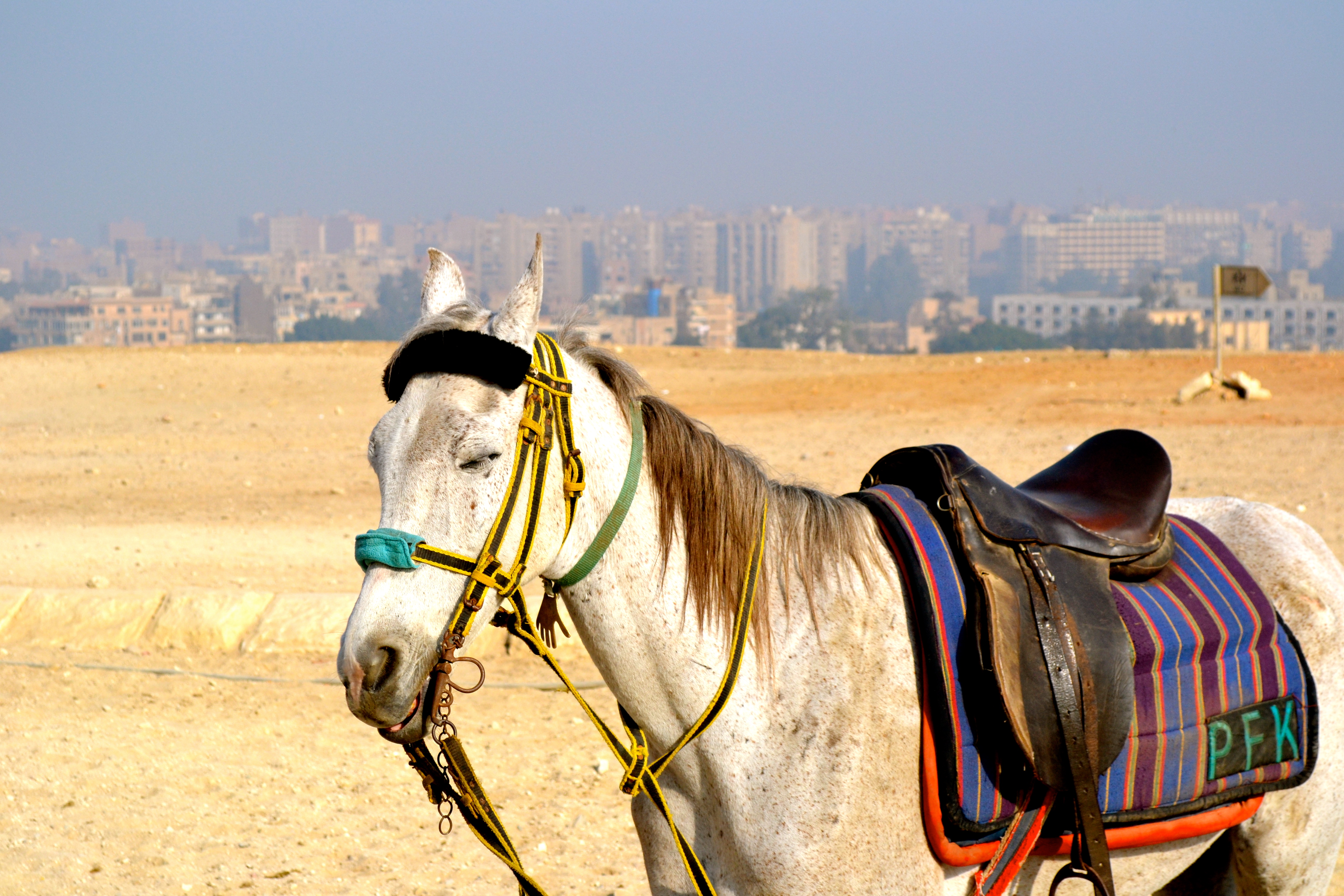

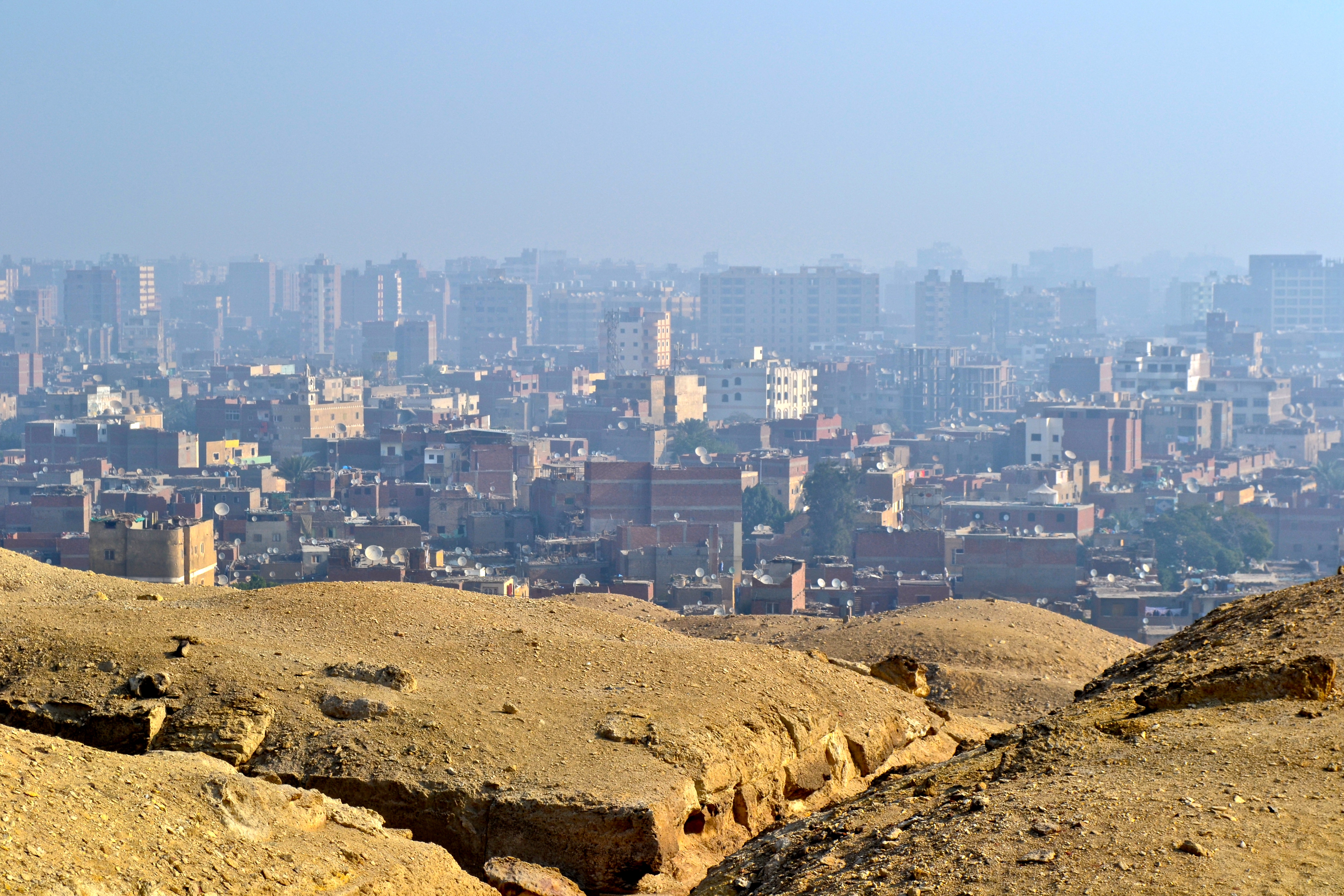
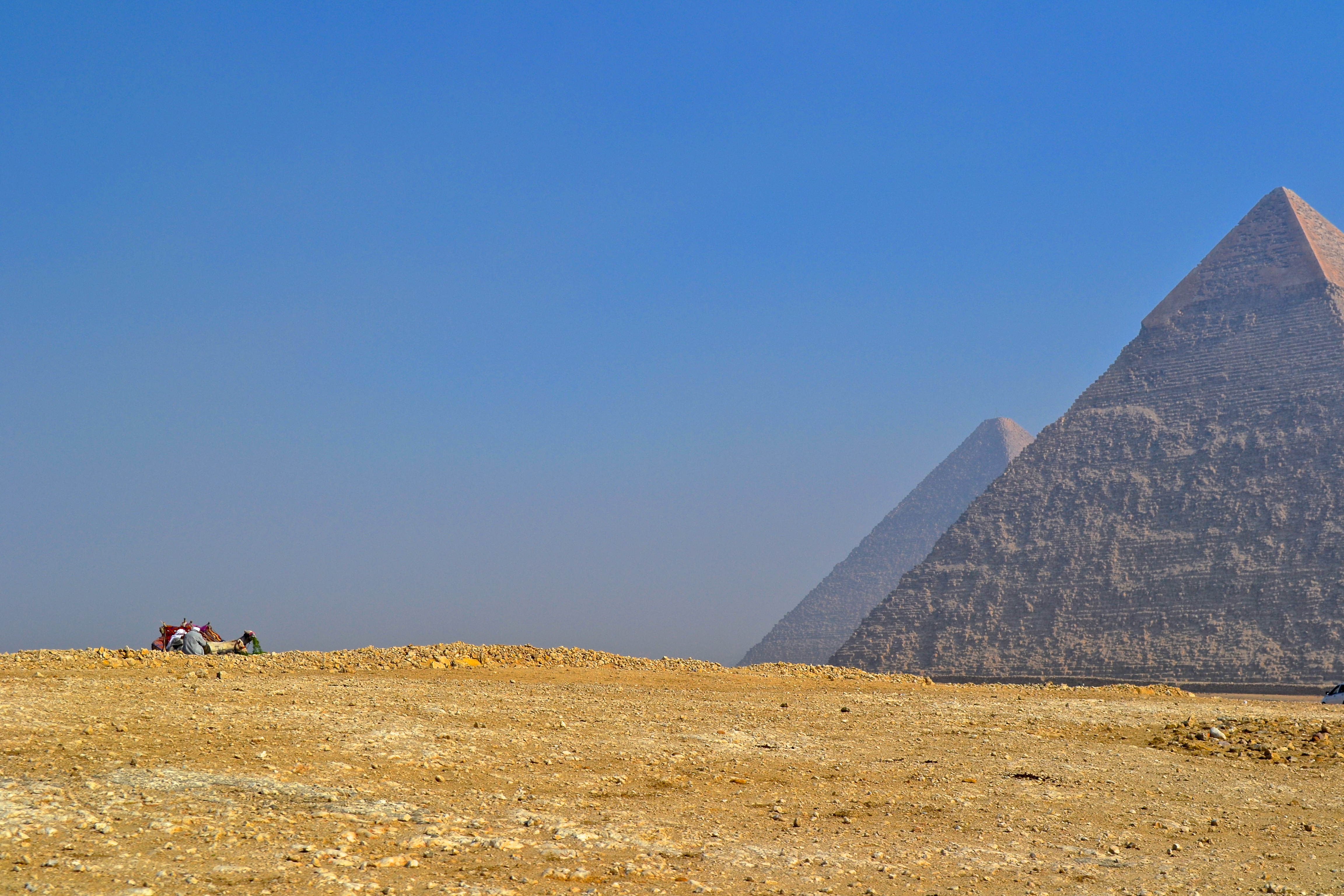
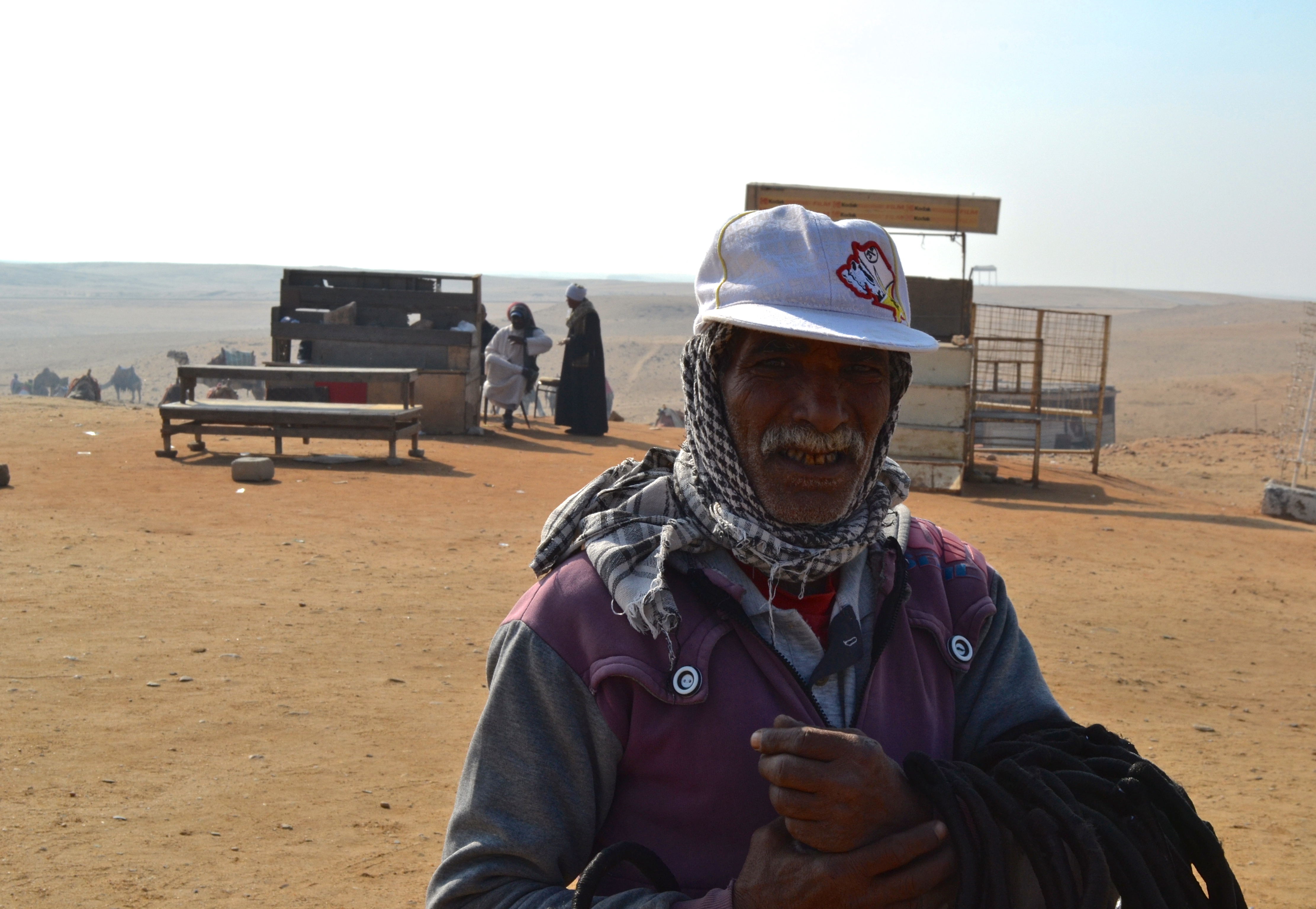


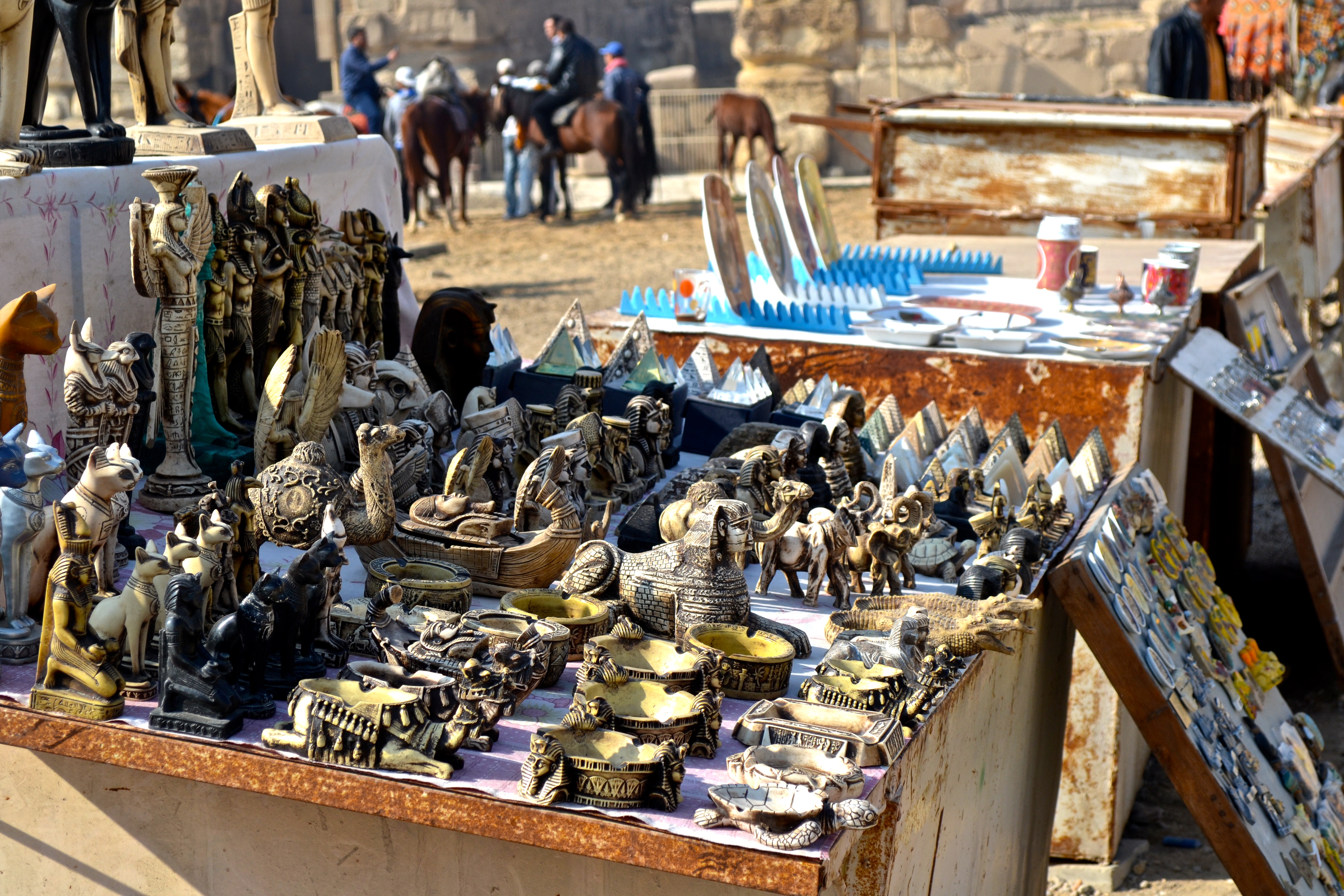
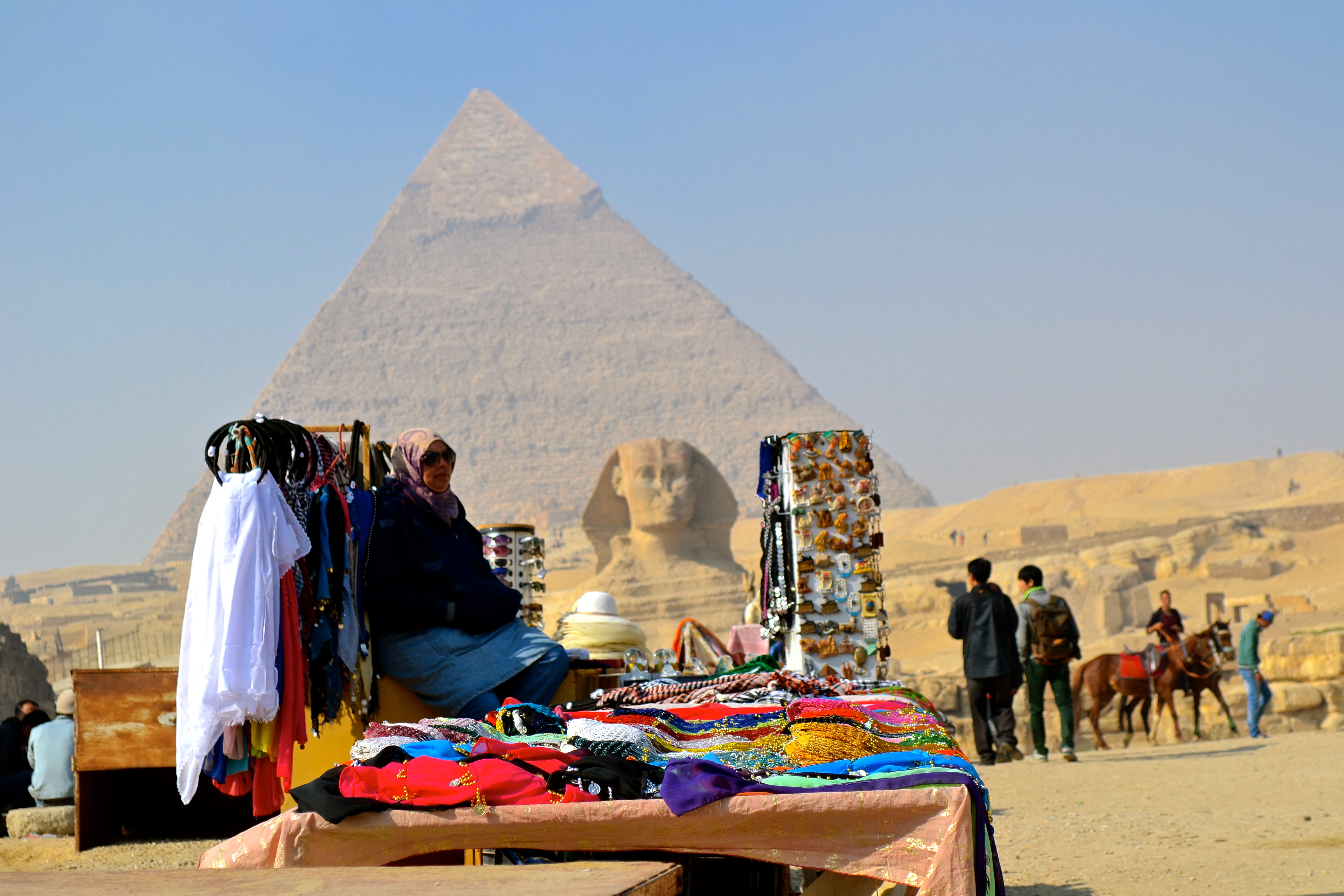




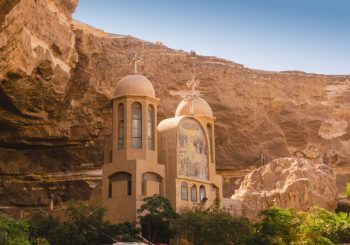
Comments (24)
I feel so sorry for the Egyptian people, I know they have to struggle these days.
I visited Luxor 2 times this year and spoke with a lot of vendors.
Not being able to feed their family , their horses….
It breaks my heart, i tried to help a little, but tourist need coming back soon.
Luxor is completely save !
Are the gangs by the below the entrance harassing anyone trying to drive up to to the parking still there? Last time I was there, they tried to break up the window on our car and blocked the road. It was terrifying.
Hi Bjorn,
Unfortunately, right out side the complex entrance they are. While driving in, a few banged on the cars trying to get us to stop in order to “take a horse carriage because driving to the Pyramids is not allowed” (an absolute lie).
The issue will continue until security forces decide to confront them. However, if you go as part of a tour – organized by a tour operator or your hotel – you shouldn’t find any problems as the driver of the vehicle will likely know how to deal with them.
I live in Cairo. We have actually gone there once with our own security guards, and that helped of course. But, it’s supposed to be a nice thing going there. Not a high security military operation..
The security forces are not likely to interfere I think, because I think they are the ones keeping the gangs at the entrance in the first place.
Yes they are! I came in from the south in the morning. Later in the early afternoon I came up that road to the ticket offices and the gang of young men tried to block the road and we’re hitting our car. This is in view of the police and men in sand color camouflage.
It’s all a big joke to them, no respect to tourist. If your not paying me your a dog.